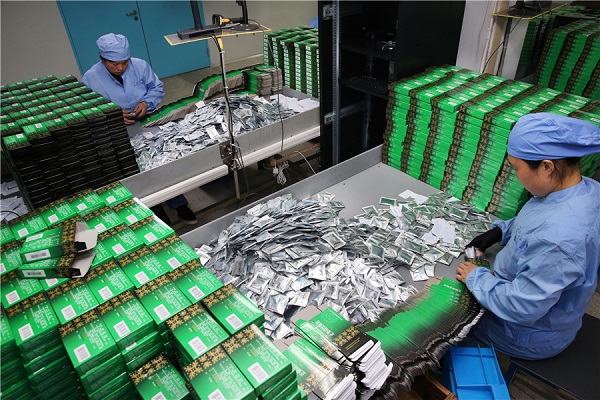Patients feel benefit as drug prices cut


The film focuses on Lu Yong, a businessman in Wuxi, Jiangsu province, who was diagnosed with leukemia in 2002 and initially spent 24,000 yuan a month on Gleevec, a patented drug developed by Swiss company Novartis. However, just two years later, the high cost forced him to turn to a generic version of a drug sold in India, which cost just 4,000 yuan a box.
He told many patients about this online and bought the drug for them through the internet, but in 2014, Lu was detained by police and charged with selling fake drugs, as the one he bought was not registered with Chinese regulators.
Under the revised Drug Administration Law, which took effect on Dec 1, drugs legally available overseas are now not considered to be fakes.
Prosecutors eventually withdrew the charges and released Lu in 2015, following petitions from more than 300 leukemia patients.
After the case, the drug Lu bought was included on the reimbursable list by authorities in many areas of China, and most patients who used to rely on generic versions from India, have since turned to patented versions, he said.
In 2015, to reduce the prices of expensive patented drugs and improve access to them for patients with serious diseases, China launched pilot negotiations with pharmaceutical companies. In return for cutting prices, the companies can increase sales by being included on the national medical insurance program.
This resulted in the first three drugs — two for lung cancer and one for hepatitis B — being approved for inclusion in the healthcare insurance program in 2016.
The following year, 36 drugs, including 15 to treat cancer, were approved. In 2018, a total of 17 anti-cancer drugs were included in the program.
Shi Lichen, founder of Beijing Dingchen Consultancy, a medical consulting company in Beijing, said drug price negotiations take place in many other countries.
"The difference is that in many European countries and the United States, such negotiations are regularly held between commercial insurance companies and pharmaceutical companies, but in China, the talks have been held between the government and pharmaceutical companies."
In addition to improving patients' access to expensive drugs, lowering prices can help control spending increases by the basic healthcare insurance fund. Meanwhile, buying drugs in bulk can motivate domestic producers to improve research and development to enable their products to be included on the reimbursement list, Shi said.
Among the 70 new drugs included on the list, three used to treat hepatitis C are produced by two overseas companies. They were selected from six drugs made by four companies — three overseas and one domestic.
Xiong, from the National Healthcare Security Administration, said all six drugs are highly effective in treating hepatitis C, but cost more than 50,000 yuan.
To encourage price reductions, pharmaceutical companies were told before the negotiations that only three of the drugs would be added to the reimbursement list. The health administration also promised that the list would not include any new drugs to treat hepatitis C for two years, Xiong said.




